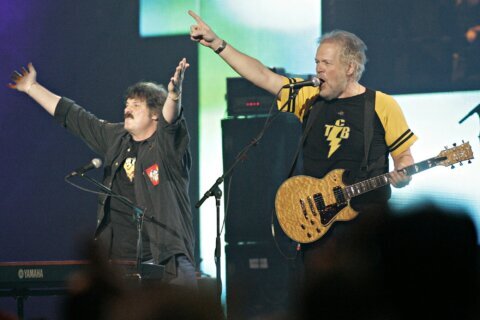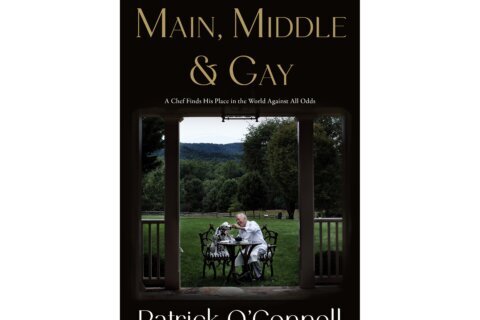Listen to our full conversation on my podcast “Beyond the Fame.”
Pure Prairie League helped define an entire era of country-rock music.
On Thursday night, the band hits The Birchmere in Alexandria, Virginia.
“We’ll be playing all the hits and misses,” Bassist and frontman Michael Reilly told WTOP. “We’ve brought back a few tunes from the really early days that we’ve never really done before, songs like ‘Call Me, Tell Me’ and ‘Angel No. 9’ from ‘Bustin’ Out’ and they’re a gas.”
The band was formed in Waverly, Ohio in 1970, named after the fictional temperance union in the classic western film “Dodge City” (1939), which reunited actor Errol Flynn with director Michael Curtiz a year after “The Adventures of Robin Hood” (1938).
“The drummer at the time, Tom McGrail, was watching late-night TV and when he saw that he said, ‘Wow, this would be a great name for a band,” Reilly said.
Reilly joined in 1973 amid frontman Craig Fuller’s draft issues during the Vietnam War.
“He filed as a conscientious objector and the judge in New York didn’t want to hear it, so he threw him in prison,” Reilly said. “We felt bad for Craig and went out to Springfield, Missouri, to bring him a chessboard, his guitar and stuff like that [in prison]. … I basically stepped up, I think by default, and grabbed the reins and kept trying to steer the buggy.”
After a self-titled debut, the band followed with its breakthrough album “Bustin’ Out” (1972), featuring the song “Amie,” which was later released as a single in 1975.
“‘Amie’ was written as a harder, rockin’ song, but when we got into the studio, we turned it into an acoustic guitar song,” Reilly said. “When guys get together and sing, that’s where magic happens. … We were lucky enough to hit upon a harmony and it just worked.”
In 1976, they covered Buddy Holly’s hit rock ‘n roll classic “That’ll Be The Day,” which was inspired by a John Wayne quote in John Ford’s western “The Searchers” (1956).
“John Boyle, who was producing us at the time, actually made the suggestion,” Reilly said. “Little did we know he was also involved with Linda Ronstadt recording that song. She came out with the single right when we came out with ours, so of course, ours got the cold shoulder. … I think we did a pretty decent, muscular version, but Ronstadt is Ronstadt.”
In 1978, the band was joined by future country superstar Vince Gill.
“In ’76, Vince was in a band, Mountain Smoke … that opened for us in Vince’s hometown,” Reilly said. “I asked him after the show, ‘Do you want to join a rock ’n roll band?’ He said, ‘Nah, I’m a grasser, I’m a bluegrass player’ … In ’78, we were auditioning guitarists. … Vince came along [with a friend]. I said, ‘Vince do you want to stick around and jam?’”
After jamming for four hours, Gill finally agreed to join the band — and the rest is history.
“Talent like that is a God-given gift and it’s just unmistakable,” Reilly said. “It was just great watching Vince’s genesis starting out as a songwriter. He was also a brilliant player. We just had a gas having him the band. … Whenever Vince is interviewed today, he’s always very gracious mentioning his day in Pure Prairie League as giving him his start.”
In 1980, Pure Prairie League found another hit with “Let Me Love You Tonight.”
“It just fit the times,” Reilly said. “The big disco scare finally ended and we had signed with Casablanca Records after RCA finally let us go. … David Sanborn’s saxophone didn’t hurt anything. It was a really good pop song written by our guitar player Jeff Wilson.”
Fans of the band will also remember the 1981 hit “Still Right Here in My Heart.”
“That was once again a Jeff Wilson song,” Reilly said. “He was a heck of a songwriter.”
Today, he appreciates sharing his story to combat misinformation on the internet.
“Wikipedia, All Music and different sites write ‘biographies’ of us,” Reilly said. “I got tired of trying to contact people and say, ‘By the way, this is actually the way it was.’ … A lot of people still think Vince is in the band or Craig, so we have to clear that up. It amuses me.”
Listen to our full conversation on my podcast “Beyond the Fame.”








